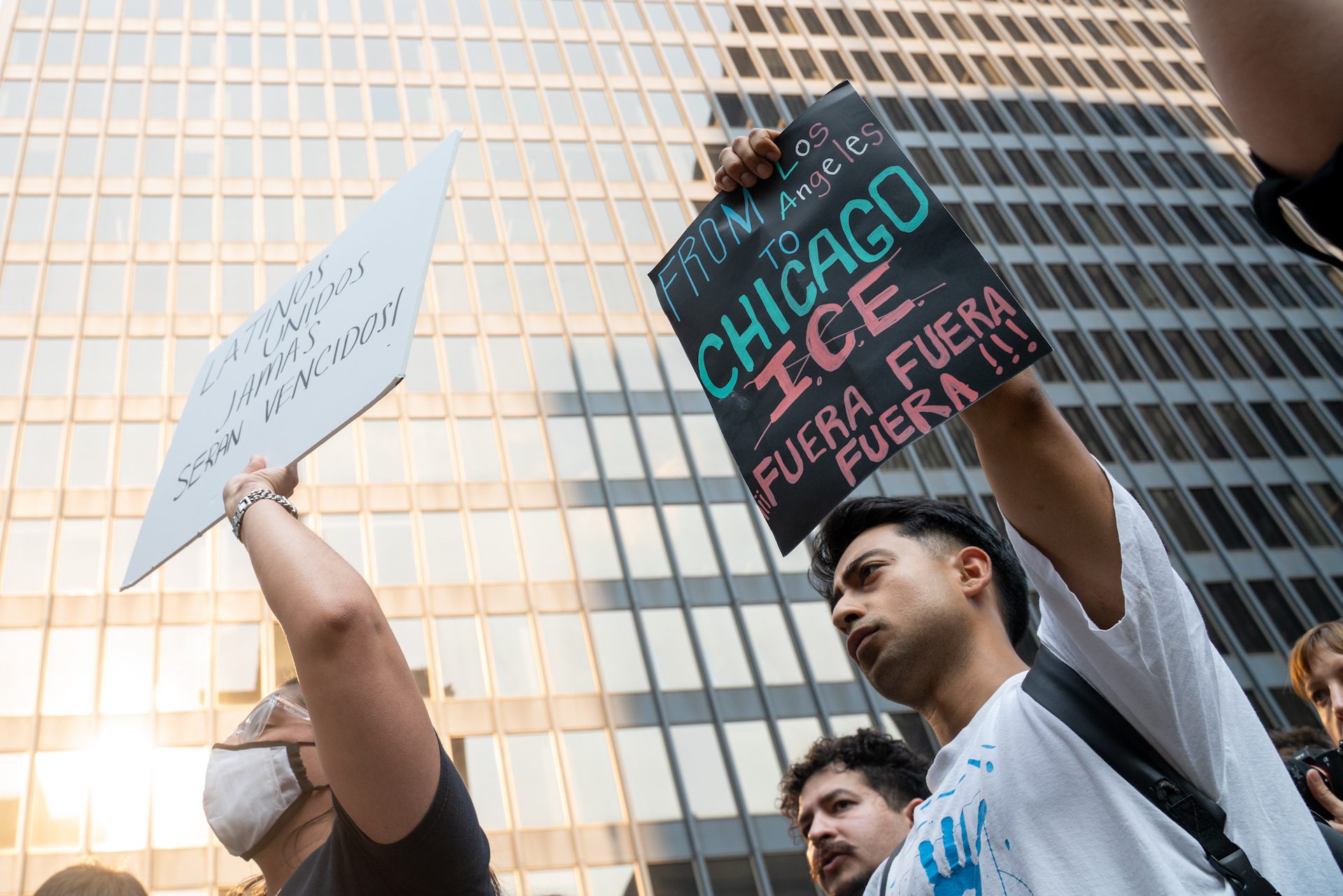 Camilla Forte for Borderless Magazine
Camilla Forte for Borderless MagazineProtests have erupted nationwide against Trump’s immigration crackdown, with tens of thousands in Chicago demanding an end to ICE raids.
Over the last week, protests have surged nationwide in response to President Donald Trump’s ramped-up efforts to deport noncitizens.
From coast to coast, demonstrations have called for an end to Immigration and Customs Enforcement (ICE) raids.
In Chicago, tens of thousands of people have participated in multiple demonstrations supporting immigrant communities. Organizers say they’re opposing Trump’s latest travel ban and advocating for the release of local immigrants detained by ICE.
News that puts power under the spotlight and communities at the center.
Sign up for our free newsletter and get updates twice a week.
Tuesday’s protest began at Chicago’s immigration court and followed with a rally at Federal Plaza at 5:30 p.m. The protest remained largely peaceful, though at least 17 people were arrested, mostly for misdemeanors, according to reports from Block Club Chicago.
This week’s actions follow objections from city officials and immigrant community leaders regarding ICE arrests at a South Loop monitoring site earlier this month. Gladis Yolanda Chavez Pineda, a mother, grandmother and longtime Chicago resident, was among at least 10 people detained.
From January to May this year, ICE carried out more than 90,000 arrests, according to data from the Department of Homeland Security. Since Trump’s inauguration, daily arrests have averaged more than 600 per day, which is below the president’s goal of a minimum of 3,000 daily ICE arrests.
To expand deportation efforts, the Trump administration has:
- expanded the use of 287(g) agreements that allow local law enforcement agencies to assist in immigration enforcement operations;
- executed removals in immigration court following case dismissals;
- authorized ICE agents to make arrests in previously designated sensitive locations such as schools and churches;
- and allowed collateral arrests, meaning ICE officers can arrest noncitizens not initially targeted in an enforcement action.
Illinois officials have criticized these efforts.
On Thursday, Illinois Gov. JB Pritzker defended sanctuary laws in Congress, calling for more “safe and compassionate” immigration policies. Sanctuary policies in Chicago and Illinois limit local law enforcement’s cooperation with ICE.
Chicago Mayor Brandon Johnson also defended sanctuary protections for immigrants at a congressional hearing in March.
The Trump administration plans to escalate federal immigration efforts this weekend by deploying ICE Special Response Teams to Democratic-led cities like Chicago, Seattle, Philadelphia, New York and Washington D.C., according to reports from the Associated Press and NBC Chicago. The “elite special response teams,” also known as SRTs, are typically used in “high risk” operations, the report said.
This escalation follows Trump’s deployment of the National Guard to Los Angeles — without the consent of California Gov. Gavin Newsom — in response to protests against ICE. The state of California has since sued the Trump administration for the decision, stating that it was an “unprecedented power grab,” per CBS News.
Johnson said the city is prepared for large-scale demonstrations this weekend and encouraged Chicagoans to exercise their First Amendment right to protest.
“I am counting on all of Chicago to resist in this moment,” Johnson said, according to a report from WTTW.
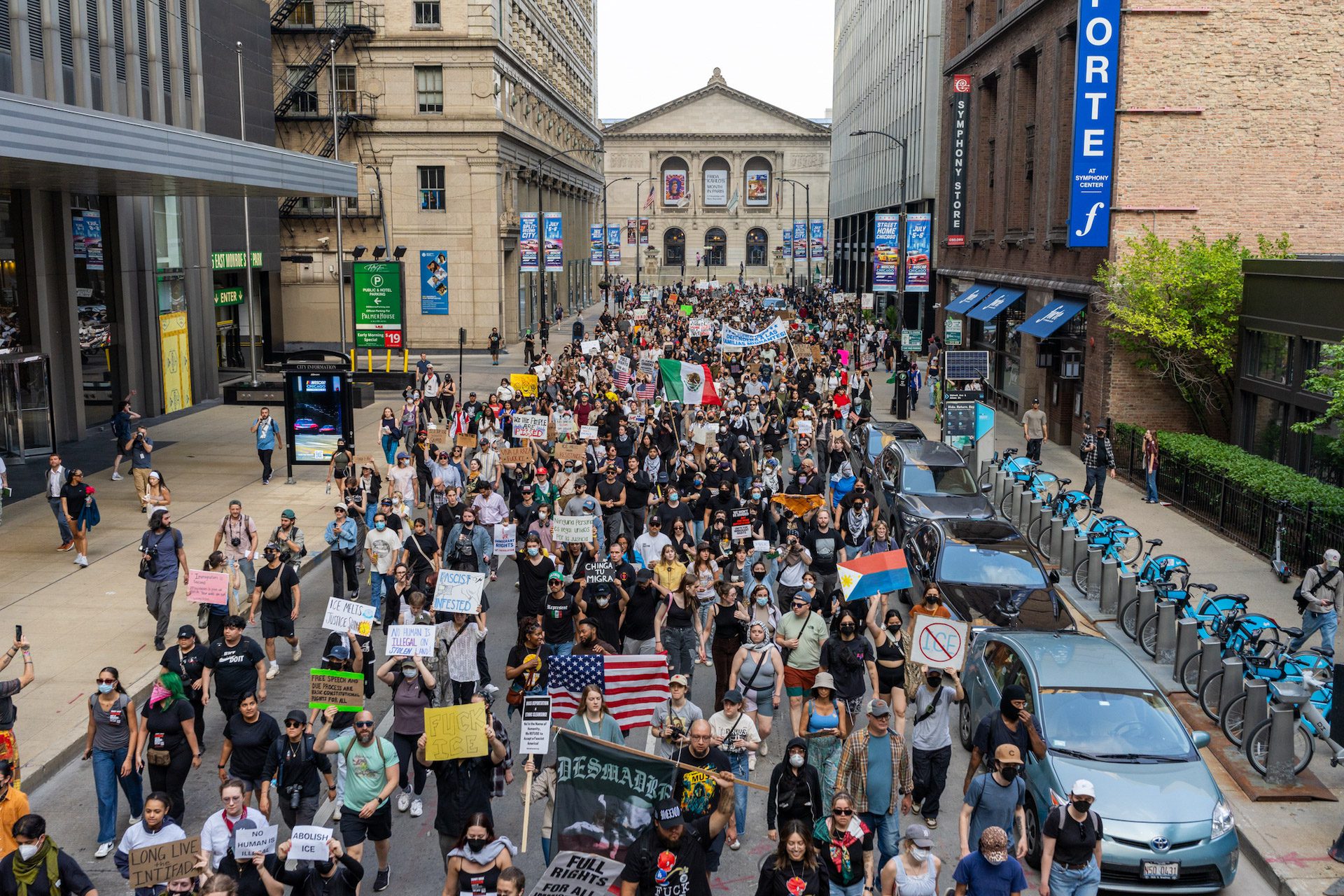
Protesters in this week’s mobilizations say they are supporting friends, neighbors, family members and others impacted by heightened immigration enforcement actions.
“I grew up with immigrant parents and have seen the struggles and understand the struggles of being a child of immigrants,” said Andreina Mendoza, who attended Tuesday’s protest. “I’m here today protesting because I don’t think families should be separated.”
Monzerra Cisneros, whose parents are also Mexican immigrants, echoed that sentiment.
“[Our parents] struggled to get here…and it’s [our] privilege as citizens to also speak up for them,” said Cisneros, who also attended Tuesday’s protest.
Demonstrations are set to continue Saturday, as protesters march through downtown and in Illinois suburbs for the “No Kings” nationwide protest. The movement is in response to Trump’s multi-million-dollar military parade to celebrate the U.S. Army’s 250th anniversary, which coincides with Trump’s 79th birthday.
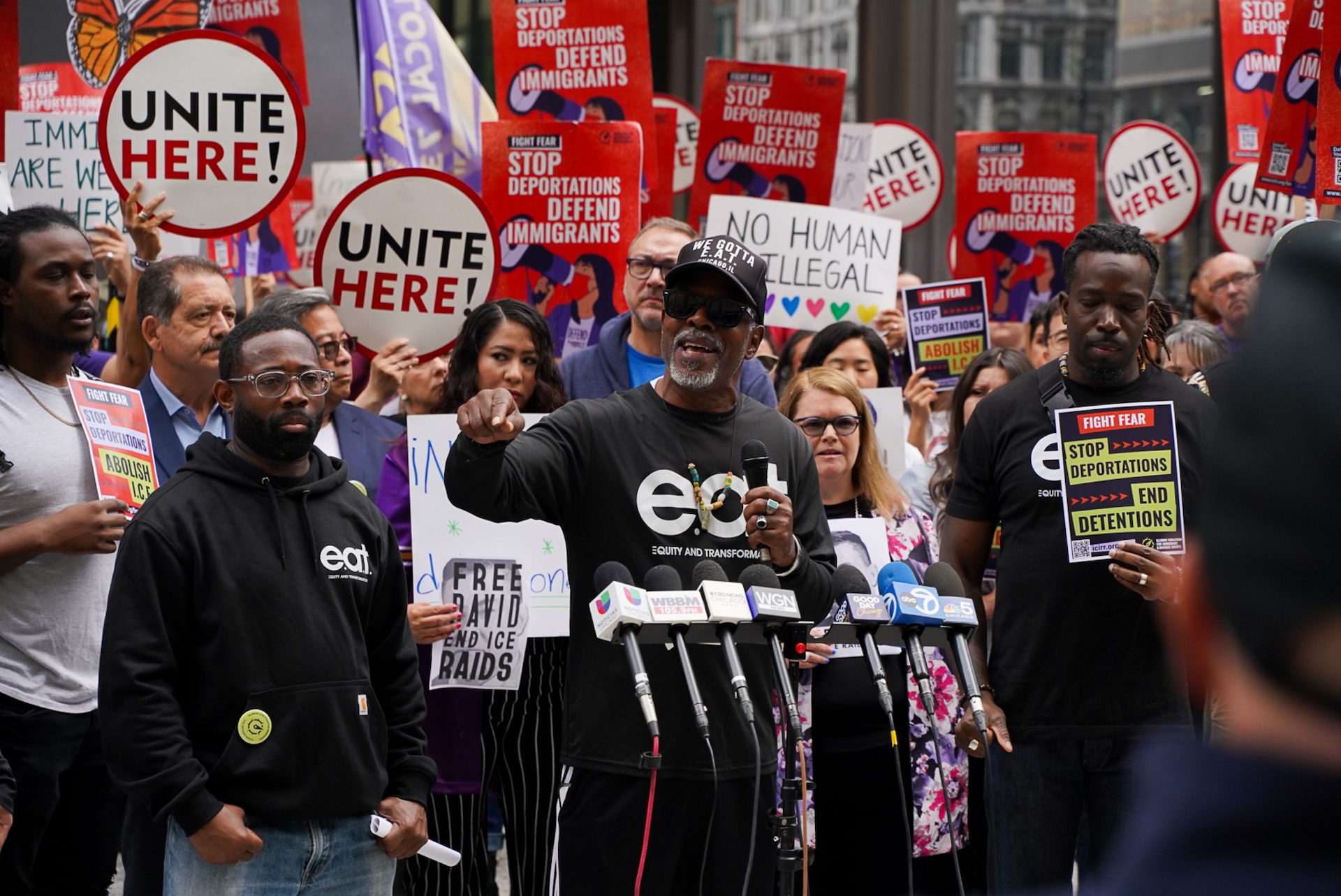
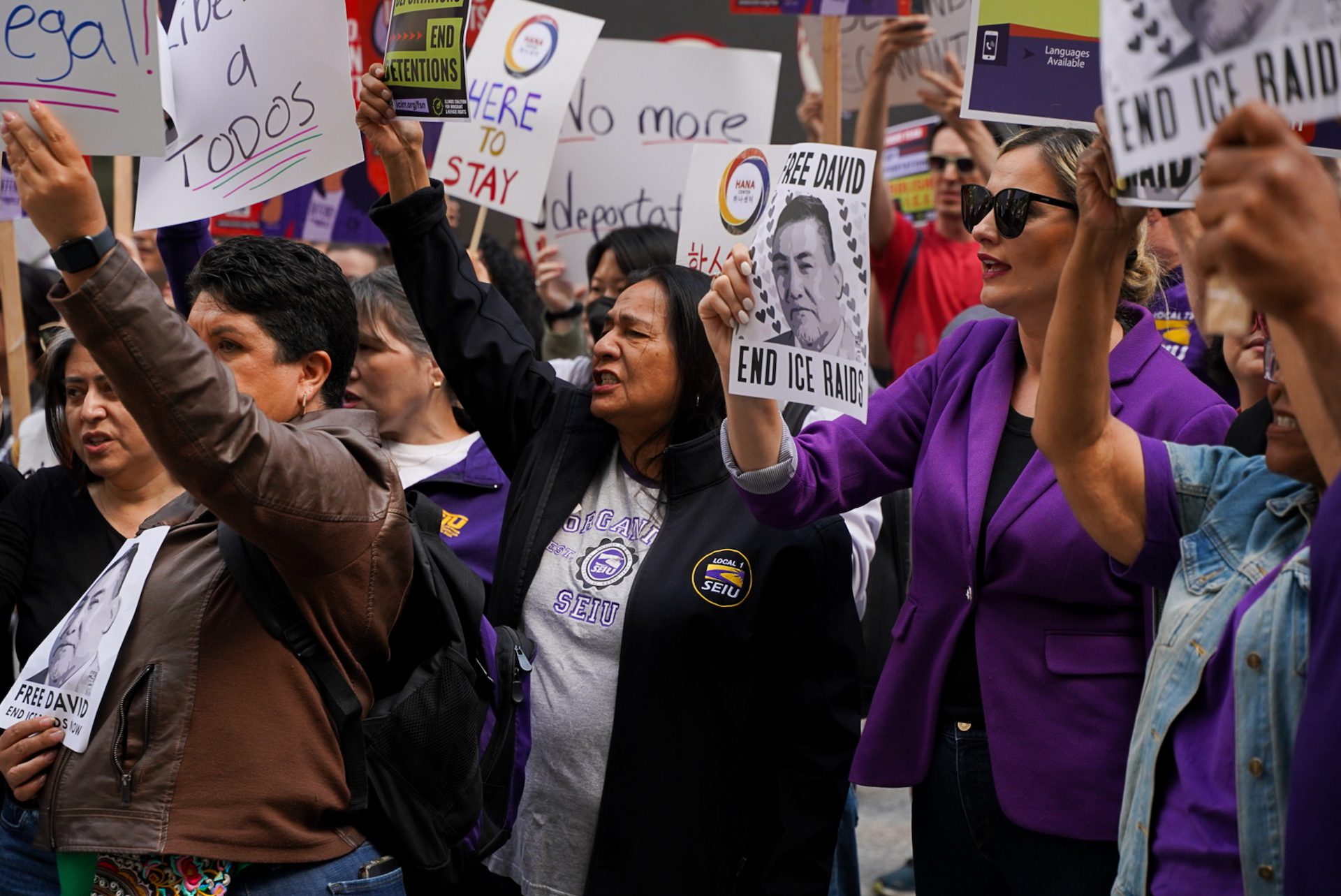
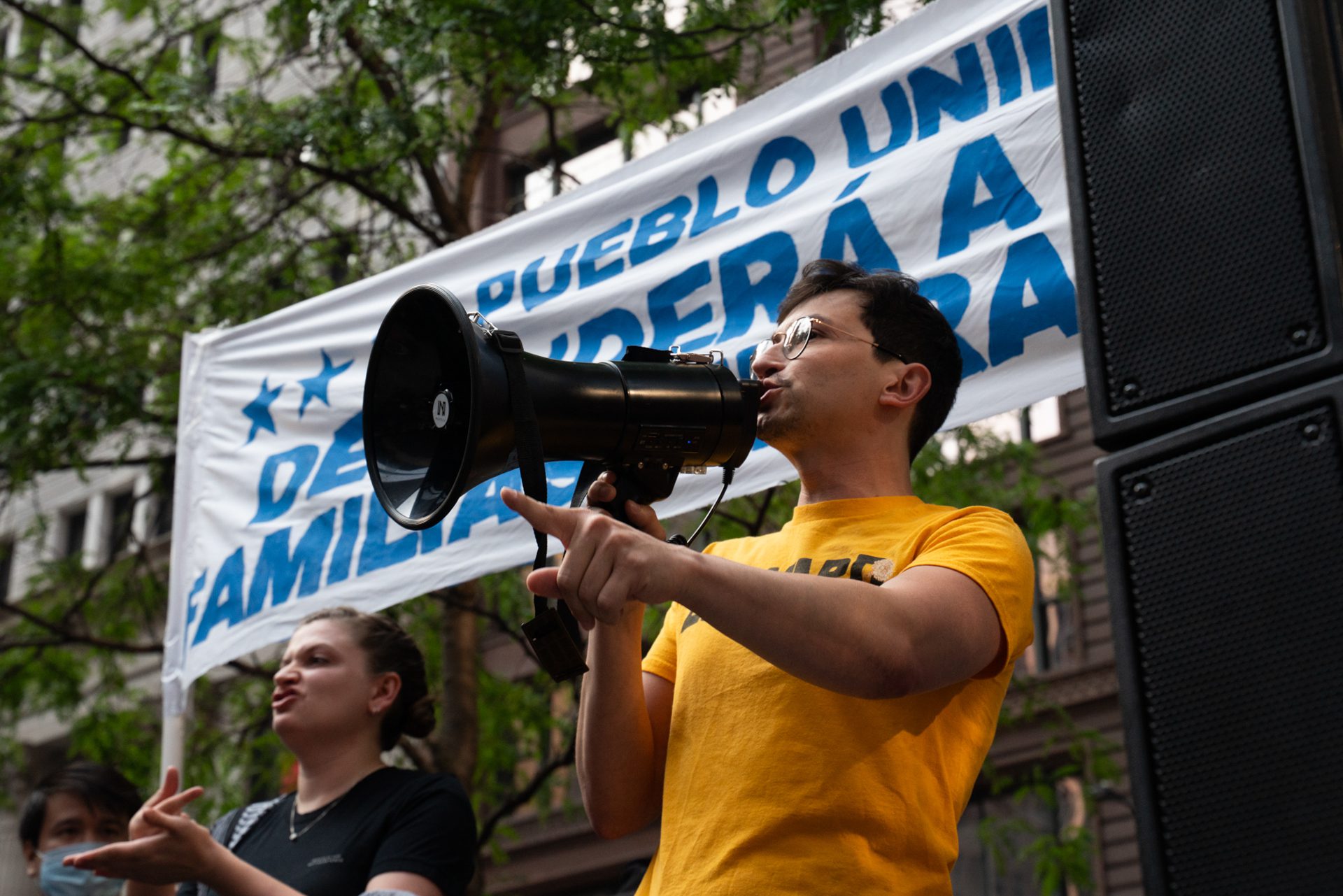
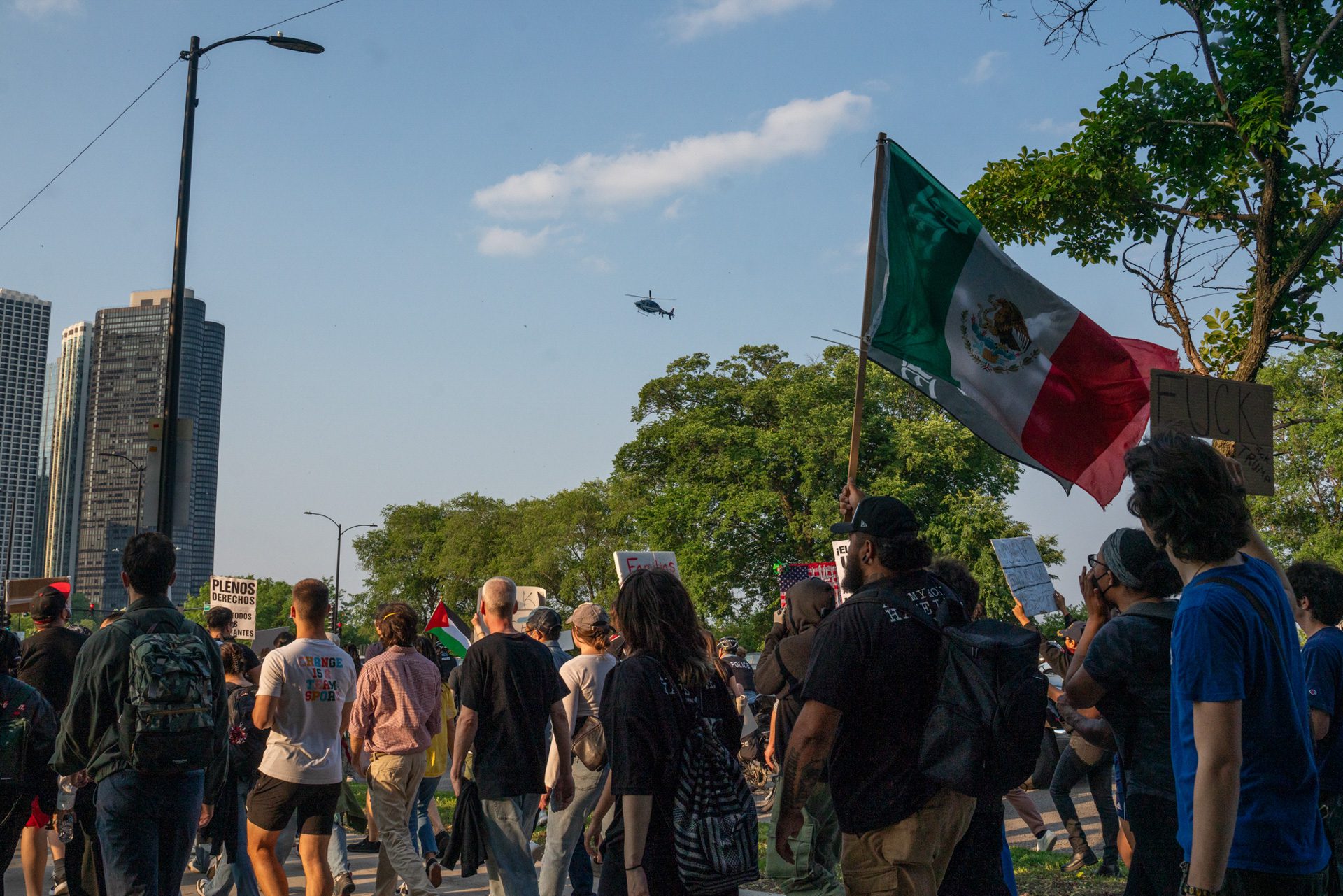
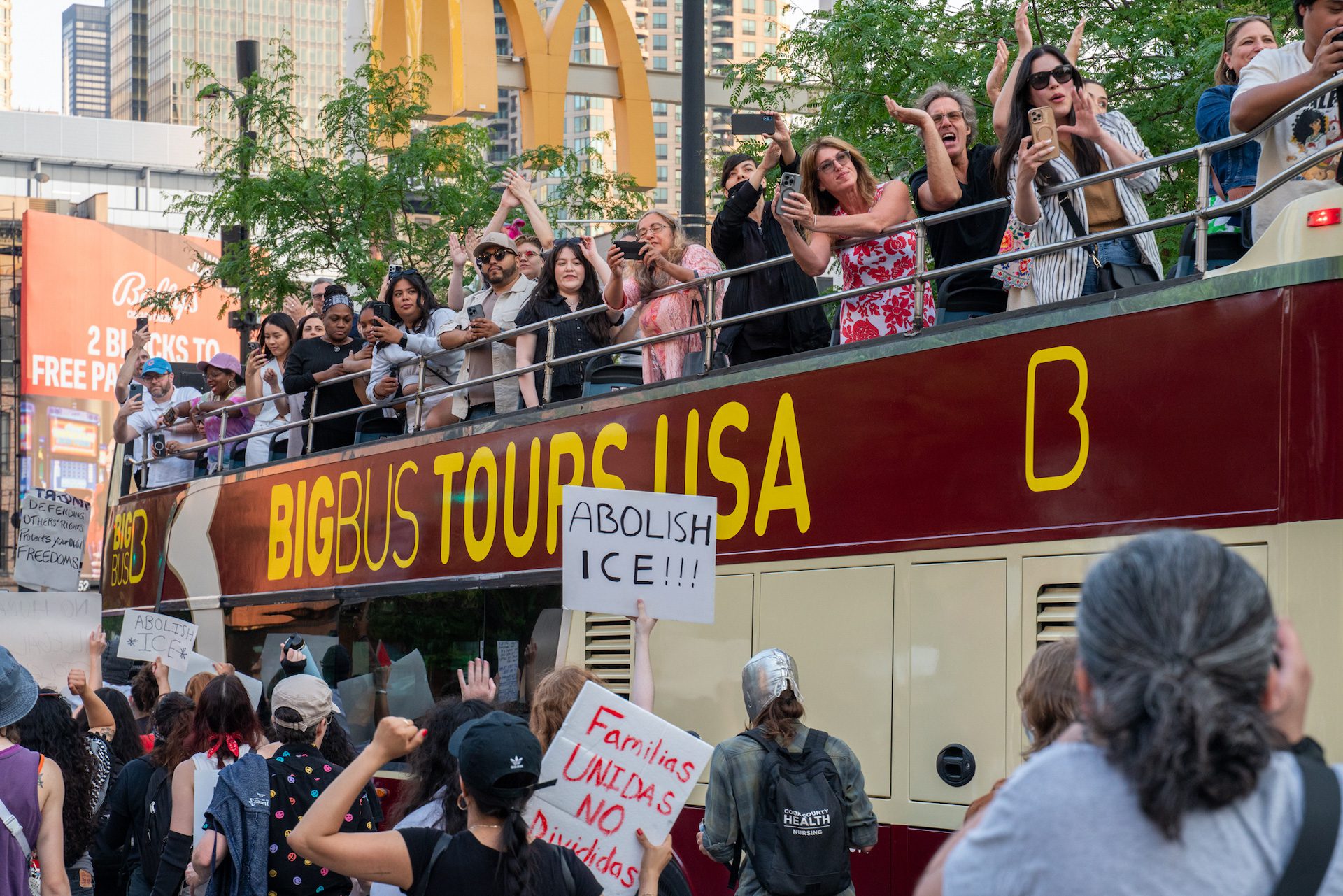
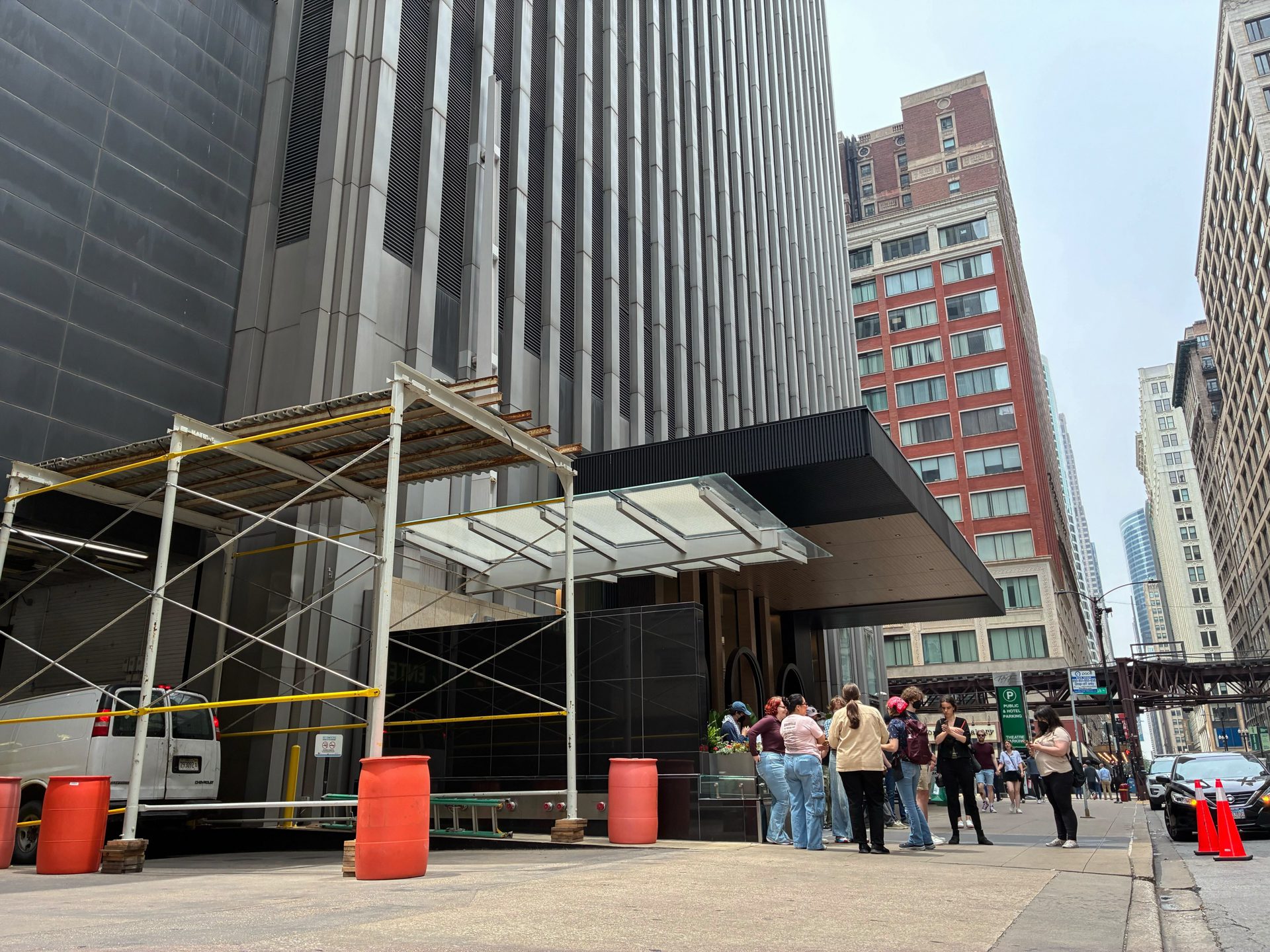
Katrina Pham is Borderless Magazine’s audience engagement reporter. Email Katrina at [email protected].
Max Herman is Borderless Magazine’s Visual Editor. Email Max at [email protected].
Contributing reporting from Camilla Forte.

